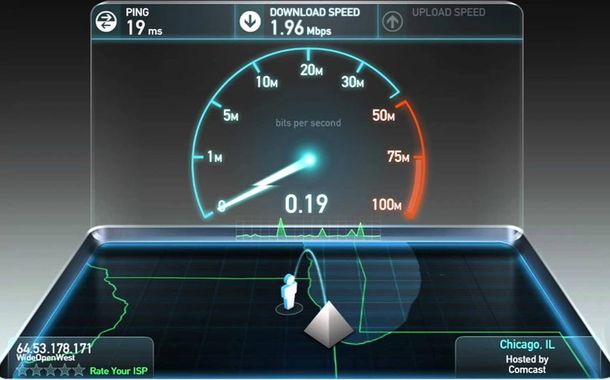
Every internet service provider (ISP) is known for offering different internet plans with different download and upload speeds. If you are looking for new internet service, the options available might confuse you. The speed of Residential internet plans has increased quickly over the past few years. This means that top-notch internet plans provide more speed than they would require. But what if you wish to know what is a good download and upload speed suitable for you? To know about it, you would want to go through the information provided below.
What is Good Download Speed?
If we go by the book, a good download speed for an average household is 10 Mbps per person. Well, yes a good download speed for you mainly depends on what you use your internet for and how many devices consume your internet bandwidth. Video streaming services such as Amazon Prime, Netflix, and Hulu are known for being the most bandwidth-intensive activities that people use their internet. If you are using several streaming devices at home for playing videos, you would want to go for a download speed that can allow you to carry out such activities without making you wait for frequent buffering.
If you are not sure about the speed your devices need to keep functioning uninterruptedly, you can do some basic mathematics for the speed requirement.
What is a Good Upload Speed?
Just like mentioned above, if the general recommendation is considered, a good upload speed to use for your home internet requirements is generally for is 5 Mbps. While most of the time you don’t feel concerned about upload speed when buying an internet plan, if you like to upload videos frequently on YouTube or large size documents on Google Drive and other platforms, make sure you also keep in mind the upload speed being offered to you. Usually, asymmetric DSL (ADSL) offers a speedof up to 1.5 Mbps, on the other hand, cable internet offers upload speeds from 5 Mbps to 50 Mbps.
While for most of the online activities, ADSL’s 1.5 Mbps is sufficient for an uninterrupted internet experience, however, you may need additional upload speed if you do a lot of video chat, Livestream video, or upload high-resolution images frequently.
In case you use your home network for school, work, or online streaming on a frequent basis, the low upload speed of ADSL’s is most likely to be a problem. In such a case, it is recommended to find a cable provider that offers upload speeds on the high end, for example between 25 Mbps and 50 Mbps.
Alternatively, for a better upload speed, you can also consider going for fiber internet plans if it is available in your area. Fiber-optic networks are known for having symmetrical upload speeds, meaning if you have a 1 Gbps (1,000 Mbps) internet connection, you will get 1 Gbps Download and 1 Gbps Upload speeds. Although Fiber is considered to be the most reliable connection type, allowing you to Livestream anything without any issues, you may need to pay a lot more compared to other internet type connections.
What Do I Need Download and Upload Speed For?
As most Internet Service Providers only advertise the download speeds speed of their internet plans, you might not even be aware of the upload speeds being offered to you. Also, as download speeds are also generally the faster of the two speeds and mainly used, most advertisements tend to focus on it rather on upload speed.
Download speed is responsible for determining how fast data can move from the internet to your home or office. Whether you’re browsing a website, updating your device, or watching Netflix, all that information comes from a server located somewhere and travels through your connection into your house. For a majority of the activities, you perform on the internet, download speed is most likely to be the most important factor.
On the other hand, upload speeds are used primarily when you are looking to send information using your device to another location on the internet. Although the upload speed is not taken into consideration a lot compared to downloading information, we upload information all the time though. From posting a video/photo on Facebook, sending a picture from your device, to video live chatting, all such activities required upload speed. This speed is also required whenever you open a link or enter a search term into Google Search. That information needs to be moved from your browser to the appropriate server in order to get the desired result from it to our devices. This means that Uploading is also an essential part of using the internet as the download speed is.
Conclusion: Always Pay Only for Speed You Will Be Using
Undoubtedly, fast internet is best; however, paying for a faster connection than what you need is useless. It is therefore always recommended to select an internet provider that meets your both maximum download and upload speed requirements and also fits your pocket.

